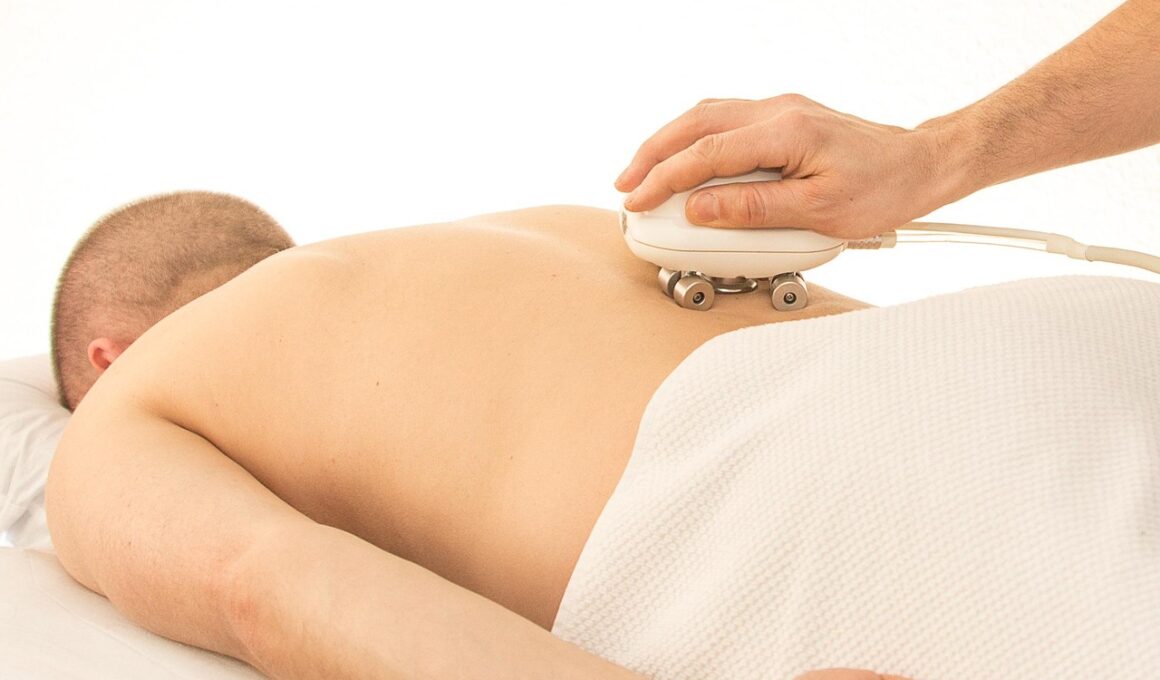The Role of Physical Therapy Exercises in Pregnancy Back Pain Relief
Pregnancy often brings joy, but it can also introduce physical challenges, such as back pain. Many pregnant women experience back discomfort due to hormonal changes, increased weight, and shifts in posture. To alleviate this pain, physical therapy exercises can be highly beneficial. These exercises are specifically designed to strengthen muscles, enhance flexibility, and improve overall posture. Incorporating these routines into a daily schedule can lead to significant relief and well-being. It is essential to consult with a healthcare professional before starting any exercise regimen during pregnancy, ensuring that exercises are safe and tailored to your specific needs. Various exercises such as tailored stretches and low-impact aerobic activities can help to relieve tension in the back. These exercises not only reduce pain but also promote circulation, which is crucial for both the mother and the baby. This dual benefit makes physical therapy exercises a vital part of maintaining health during pregnancy. Additionally, education focusing on body mechanics and ergonomics can assist in reducing the risk of pain caused by daily activities. Seeking professional guidance ensures exercises are effective and safe throughout the pregnancy journey.
Importance of Physical Therapy During Pregnancy
Physical therapy plays a significant role in managing pregnancy-related back pain. This therapeutic approach enables women to stay active while supporting bodily changes. A well-trained physical therapist can provide tailored exercises that focus on areas impacted by pregnancy, specifically targeting the back, core, and pelvic muscles. The primary goal is to improve flexibility and strength, providing stability to the lower back. When the muscles are strong, they can better support the growing belly, thus reducing the strain on the lower back. Additionally, physical therapy includes education about proper posture and safe movements, guiding women on how to perform daily tasks without exacerbating pain. For instance, techniques for lifting or bending safely can be life-changing during pregnancy. Many patients report decreased pain and improved mobility with consistent physical therapy sessions, transforming their experience. Furthermore, individuals undergoing treatment often discover better coping strategies through relaxation techniques, which are integral to managing discomfort. These movements empower women, encouraging them to take an active part in their own health during this transformative time. Investing in physical therapy can ultimately create a more enjoyable pregnancy experience and lay the foundation for a healthy postpartum recovery.
Understanding specific exercises recommended during pregnancy can help manage back pain effectively. Physical therapists usually create customized programs that may incorporate stretches, strengthening movements, and certain aerobic exercises, all designed to enhance overall resilience and decrease discomfort. Some beneficial movements include pelvic tilts, cat-cow stretches, and supported bridges that help align the spine and decrease tension. For strengthening, exercises targeting the abdominal and back muscles can also be effective. Each exercise should be performed under the guidance of a healthcare provider to ensure safe execution and to adapt as the pregnancy progresses. Using supportive props, such as exercise balls or resistance bands, can enhance effectiveness while ensuring safety. These exercises not only focus on pain relief but also work on preparing the body for labor. Regular engagement in these exercises can lead to improved endurance and flexibility, which is beneficial for the birthing process. Sustaining an exercise program throughout pregnancy can yield profound physical and mental benefits, making it a critical focus area for expecting mothers. By fully embracing physical therapy, women can take proactive steps toward healthier pregnancies and potentially smoother deliveries.
Managing Back Pain at Home
In addition to professional physical therapy, pregnant women can manage back pain through simple at-home strategies. Creating a comfortable environment is essential. Consider using supportive cushions and good posture while sitting or sleeping to maintain proper spinal alignment. Gentle stretching routines can also alleviate tension and enhance mobility. Incorporating activities such as prenatal yoga or swimming can provide low-impact relief and support physical fitness. These methods encourage relaxation and strengthen core muscles that support the back. It is crucial to listen to the body, adjusting movements according to comfort levels. Avoiding sudden movements and repetitive strain can reduce the risk of exacerbating pain. Utilizing heat therapy, through warm compresses or heating pads, can also relieve tight muscles. Cold packs may reduce swelling, offering additional pain management options. Maintaining an active lifestyle through safe, enjoyable pursuits fosters both physical and emotional well-being. Engaging in conversations with peers or support groups can also reinforce a positive mindset, sharing experiences and solutions. This holistic approach not only addresses physical discomfort but strengthens the emotional landscape, ensuring a more balanced pregnancy experience.
Educating yourself about your body during pregnancy is crucial for managing back pain effectively. Understanding the changes that occur can demystify symptoms and help to reduce anxiety. Knowledge empowers women to identify when to seek professional help and when self-care might suffice. Discussions surrounding discomfort should include the right exercises and ergonomic adjustments for daily life. Being proactive in addressing pain encourages a sense of control—an empowering feeling during pregnancy. Another important aspect is engaging your partner or support system in your wellness journey. Involving them in physical activities, attending therapy sessions, or simply sharing experiences can enhance emotional support. This collaboration creates a positive environment for physical and mental health, benefiting both the mother and baby. Many resources are available, including local classes or online content focused on pregnancy fitness. Books and articles on pregnancy fitness can provide additional strategies tailored for managing back pain. Leveraging community resources can highlight shared experiences, making the journey less isolating and more enriching for each woman addressing back pain through exercise. In this supportive atmosphere, expectant mothers can thrive both physically and emotionally.
Seeking Professional Guidance
Consulting a qualified physical therapist is vital in creating an effective plan to manage back pain during pregnancy. A therapist can evaluate your specific symptoms, providing personalized exercises that accommodate your physical capabilities. This individualized approach enables pregnant women to engage in physical activities that bolster their strength and flexibility, ultimately adapting as their bodies change. It’s essential to communicate openly with the therapist about any discomfort experienced during exercises, allowing adjustments to be made as needed. Assessing the growing belly’s impact on posture and movement teaches participants to adapt routines effectively. It’s also crucial to track progress through regular assessments, ensuring that engagement in exercises is both beneficial and safe. Partnering with a physical therapist empowers women throughout their pregnancies, equipping them with essential tools for managing pain. Beyond physical activities, therapists may incorporate relaxation and breathing techniques for added emotional support. This multifaceted approach creates a comprehensive understanding of bodily changes, enhancing overall well-being. Remember that every pregnancy is unique; therefore, consultations should be ongoing, ensuring the best possible outcomes for moms-to-be. Regular visits help maintain comfort and stability through all trimesters, promoting healthy pregnancies.
Ultimately, the significance of physical therapy exercises in relieving pregnancy-related back pain cannot be overstated. These targeted movements play an essential role in building strength and resilience, reducing discomfort, and promoting overall wellness for both mother and child. Embracing a proactive attitude toward physical activity allows expectant mothers to navigate the challenges of pregnancy with greater ease and comfort. Engaging in a consistent routine can help mitigate pain and improve physical health, setting the stage for a healthier postpartum recovery. As pregnancy progresses, adapting exercises to suit changing bodies is critical to optimizing care. Joining supportive communities can enhance motivation and encourage adherence to routines. Sharing experiences and seeking advice promotes emotional well-being while fostering connections with other mothers-to-be. They become allies in navigating this unique journey, supporting each other through shared experiences. The journey through pregnancy is filled with joy and expectation, combined with challenges; knowing how to care for your body during this time is invaluable. Prioritizing physical therapy is a crucial strategy for managing back discomfort and improving the overall pregnancy experience, ensuring a happier, healthier path to motherhood. Invest in your well-being by committing to physical therapy exercises for a truly transformative journey.
Conclusion: A Holistic Approach to Pregnancy Pain Management
In conclusion, understanding the crucial role physical therapy exercises play in managing back pain during pregnancy is vital for expectant mothers. With the combination of professional guidance and personal efforts, women can achieve significant relief while enhancing their overall well-being. It is essential to acknowledge the importance of self-care, informed decision-making, and ongoing support throughout the pregnancy journey. By embracing tailored physical therapy interventions, maintaining open communication with healthcare providers, and engaging in supportive communities, pregnant women can alleviate discomfort and enjoy their experiences to the fullest. Through proactive management strategies, they can lay the foundation for a healthier postpartum life. The tailored exercises and education received during physical therapy not only address immediate concerns but also promote long-term health benefits. Ultimately, empowering oneself with knowledge, support, and self-care strategies culminates in a more fulfilled pregnancy journey. By prioritizing physical therapy, pregnant women can navigate this time with greater confidence and comfort, turning challenges into opportunities for growth. Make the choice to invest in your health today, tackling pregnancy back pain head-on, and unlocking a more vibrant pregnancy experience.








